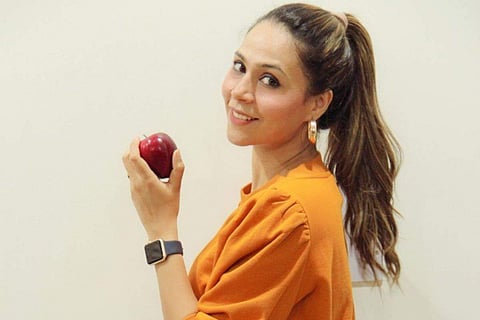
- LIFESTYLE
- FASHION
- FOOD
- ENTERTAINMENT
- EVENTS
- CULTURE
- VIDEOS
- WEB STORIES
- GALLERIES
- GADGETS
- CAR & BIKE
- SOCIETY
- TRAVEL
- NORTH EAST
- INDULGE CONNECT

Let’s start with a weird historical fact. In the 5th century BC, legendary physician Hippocrates coined the term ‘hysteria’, to describe a disease with symptoms ranging from anxiety to convulsions – caused by movement of the uterus inside a female body. It’s 2023, and the lack of research and awareness about women’s health conditions and misdiagnosing or diminishing their diseases continue to be matters of concern.
Be it referring to certain days in menstrual cycles as ‘those days’, talking about PCOD in hushed tones, or dismissing mood swings as trivial outbursts of ‘just hormones’ – public discourse on lifestyle conditions or diseases in women has always been considered a taboo topic. To bust some myths about the common lifestyle diseases of women and understand where the hush around it comes from, we talk to Ruchi Sharmma, Nutrition Coach at beauty and wellness nutrition brand Chicnutrix.
Read excerpts from the interview:
Lifestyle diseases in women have been on the rise since the last few years. Where do you think we went wrong?
These diseases have become increasingly common due to the obesity epidemic. Many people avoid cooking at home and exercise is not a priority, resulting in a trend of constantly switching from one fad diet to another. This contributes to nutrient deficiencies and the vicious cycle of weight loss and gain. Additionally, with the proliferation of technology, people are increasingly becoming sedentary, choosing to scroll on their phones rather than engage in physical activities. This is where the problem began.
Still, lifestyle diseases in women continue to remain a taboo topic. Why do you think that is the case?
One reason why women are more susceptible to lifestyle diseases is because of societal expectations of them. In patriarchal societies like India, women are considered inferior and their health concerns are not given the same attention as those of men. This mindset is so deeply ingrained in society that even now women face challenges in discussing health issues openly. Thus, they are conditioned to accept suffering as a part of their lives, which contributes to the prevalence of lifestyle diseases.
Tell us what is the difference between PCOS and PCOD and how can one prevent them.
The terms PCOS and PCOD are often used interchangeably. However, these conditions are quite different, despite sharing some similarities.
PCOD (Polycystic Ovarian Disease) is a condition where the ovaries release an excessive number of immature or partially-mature eggs, which can develop into cysts. Common symptoms include abdominal weight gain, irregular periods, infertility, and male pattern hair. In contrast, PCOS (Polycystic Ovarian Syndrome) is characterised by higher-than-normal levels of androgen production, which can interfere with the development and release of eggs. As a result, cysts can form in the ovaries and build up over time, potentially leading to enlargement of the ovaries.
Both these conditions require specialised treatment to manage their respective symptoms and minimise their impact on a woman's health.
Is PCOS or PCOD curable through lifestyle shifts?
Yes, you can reverse these diseases by making lifestyle shifts but only under the guidance of professionals.
Consumption of supplements by women is another practice that has increased in India of late. Why do you think that is happening?
Supplement consumption has increased because of awareness, professionals guiding individuals or providing recommendations on social media research, advertisements, and the influence of other women who have seen positive results. Basic supplements like inositol, magnesium, and zinc are generally safe. However, supplements for specific conditions like acne-prone skin should be taken under the guidance of a professional.
Should supplements become a part of every woman’s diet?
Dietary supplements can provide essential nutrients lacking in a person's diet. However, whether supplements should be a part of every woman's diet depends on various factors, like their individual health needs and dietary restrictions. Also, some supplements may even be harmful if taken without proper guidance. Always consult with a professional before taking any supplements to ensure they are safe and effective for your specific needs.
Many women start following a serious health regimen in their mid-20s or early-30s but quickly fall short of consistency. What is the one mistake they make that causes so?
In your twenties, you have a lot of energy to do many things but later, you need a sustainable plan to provide you with energy throughout the day. So, whenever you begin a nutrition plan or training routine, it should be something you can follow for at least the next 20-25 years, as it's during this time that you can make or break your body. You need to put in the right effort for the right reasons, not just to look better but to become fitter and healthier from the inside out.
You work with clients who suffer from obesity. Unfortunately, a lot of people start their weight loss journeys because of body shaming. What is your take on that?
Body shaming exists, but one shouldn't get onto a plan because of it. Rather, one should do it to live a healthier fulfilling life. Starting a plan due to body shaming can provide motivation only for a short period, as motivation comes in bouts. However, if you have discipline and willpower, you can create habits to stick with you for the long term and help you emerge a winner in the end.
(This interview is a part of Women Talking Taboo — a series of articles featuring exclusively on Indulgexpress — on the occasion of International Women’s Day. Watch this space for more such pieces)
Email: prattusa@newindianexpress.com
Twitter: @MallikPrattusa